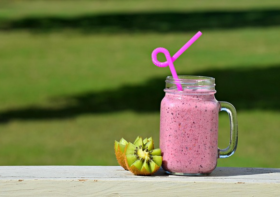Dealing With Seasonal Allergies: A Practical Guide

Are seasonal allergies giving you a runny nose and itchy eyes? Look no further, as this practical guide provides you with valuable tips and tricks to combat those pesky symptoms. From understanding common triggers to effective strategies for relief, this article is your go-to resource for navigating the world of seasonal allergies. Say goodbye to sneezing fits and hello to a more comfortable allergy season with this informative guide.
Understanding Seasonal Allergies
What are seasonal allergies?
Seasonal allergies, also known as hay fever or allergic rhinitis, are an immune system response to the increase in pollen and other allergens present in the air during specific times of the year. These common allergies occur when the immune system mistakenly identifies harmless substances such as pollen, grass, or mold spores as threats. As a result, the body releases chemicals, such as histamine, causing a range of uncomfortable symptoms.
Common triggers for seasonal allergies
The most common triggers for seasonal allergies are pollen from trees, grasses, and weeds. The specific allergens can vary based on the time of year and geographic location. In the spring, trees such as oak, birch, and cedar release large amounts of pollen. Grasses such as Bermuda grass and Timothy grass are major sources of allergens in the summer, while ragweed and sagebrush trigger seasonal allergies in the fall. Mold spores are another common trigger and can be present both indoors and outdoors, especially in damp environments.
How do seasonal allergies affect the body?
When an individual with seasonal allergies comes into contact with their specific allergens, the immune system overreacts and releases chemicals like histamine. Histamine then leads to inflammation and a range of symptoms. These symptoms can vary from person to person but commonly include sneezing, itching, a runny or stuffy nose, watery eyes, and even fatigue. In more severe cases, seasonal allergies can also trigger asthma attacks in individuals with asthma.
Identifying Seasonal Allergy Symptoms
Common symptoms of seasonal allergies
Seasonal allergies can manifest with a variety of symptoms. The most common symptoms include frequent sneezing, a runny or stuffy nose, itchy or watery eyes, and an itchy throat or ears. Some people may also experience headaches, fatigue, and a general feeling of being unwell. It’s important to note that not everyone experiences the same symptoms, and the intensity of the symptoms can also vary.
Distinguishing between cold and allergy symptoms
Differentiating between seasonal allergy symptoms and those of a common cold or other respiratory infections can sometimes be challenging. However, some key differences can help you identify whether you are dealing with allergies or a cold. Allergy symptoms tend to persist over an extended period, often weeks or months, while cold symptoms usually last for a shorter duration, typically 7 to 10 days. Additionally, cold symptoms may include fever and body aches, which are not typically present with seasonal allergies.
When to consult a healthcare professional
Most cases of seasonal allergies can be managed with over-the-counter medications and home remedies. However, it is advisable to consult a healthcare professional if the symptoms are severe, persistent, or significantly affect your quality of life. They can provide a proper diagnosis, recommend appropriate treatment options, or refer you to an allergist for further evaluation and management if necessary.

Preventive Measures for Seasonal Allergies
Monitoring pollen counts
Monitoring pollen counts in your area can help you anticipate the severity of your seasonal allergies. Many weather websites, local news outlets, and even smartphone apps provide regular updates on pollen levels. By knowing the pollen count, you can plan your outdoor activities on days when the count is lower, reducing your exposure to allergens.
Minimizing outdoor exposure
Minimizing outdoor exposure can significantly reduce your exposure to pollen and alleviate your symptoms. Avoid spending excessive time outdoors, especially during peak pollen hours, which are typically early morning and late afternoon. If you must be outside, wearing sunglasses can help reduce the amount of pollen that reaches your eyes. Additionally, wearing a hat can minimize pollen contact with your hair, and changing your clothes and showering when you come indoors can remove any allergens that may have accumulated on your body.
Keeping indoor air clean
Creating a clean indoor environment can provide relief from seasonal allergies. Keep windows closed to prevent pollen and other allergens from entering your home. Use high-efficiency particulate air (HEPA) filters in air purifiers and vacuum cleaners to trap allergens effectively. Regularly dust and clean surfaces to minimize the accumulation of allergens. It can also be helpful to invest in hypoallergenic bedding and wash your bedding frequently in hot water to eliminate any potential allergens.
Natural Remedies for Seasonal Allergies
Using local honey as a natural antihistamine
Local honey has gained popularity as a natural remedy for seasonal allergies. The theory behind this remedy is that consuming small amounts of local honey can help your body build a tolerance to local pollen, thereby reducing allergy symptoms. While scientific evidence supporting this claim is limited, some individuals find relief by incorporating a tablespoon of local honey into their daily diet.
Neti pots and nasal irrigation
Neti pots and nasal irrigation systems can be effective in relieving nasal congestion and rinsing out allergens that may be present in the nasal passages. Nasal irrigation involves flushing the nasal passages with a saline solution to remove mucus and allergens. This process can help alleviate congestion and reduce inflammation, offering temporary relief from hay fever symptoms. It’s essential to follow the proper techniques and use sterile saline solutions to avoid any potential complications or infections.
Incorporating probiotics into your diet
Probiotics are beneficial bacteria that can promote a healthy gut and immune system. Some studies suggest that incorporating probiotics into your diet may help reduce the severity of allergic reactions. Probiotics can be found in foods such as yogurt, kefir, kombucha, and sauerkraut. Alternatively, probiotic supplements are also available. Before starting any new supplement, it’s advisable to consult with a healthcare professional to ensure it is safe and appropriate for you.

Over-the-Counter Medications for Seasonal Allergies
Antihistamines: How they work and common options
Antihistamines are commonly used to relieve the symptoms of seasonal allergies. They work by blocking the effects of histamine, reducing inflammation, and alleviating itching, sneezing, and runny nose. There are two types of antihistamines: first-generation antihistamines, such as diphenhydramine, and newer second-generation antihistamines, such as loratadine or cetirizine. Second-generation antihistamines are generally preferred due to their longer duration of action and reduced side effects, such as drowsiness.
Decongestants: Usage and considerations
Decongestants help relieve nasal congestion and are commonly available in both oral and nasal spray forms. Oral decongestants, such as pseudoephedrine, work by constricting blood vessels in the nasal passages, reducing swelling and congestion. Nasal decongestant sprays, such as oxymetazoline, provide immediate relief by shrinking the blood vessels in the nose. However, it’s important to note that nasal decongestant sprays should not be used for more than three consecutive days to avoid rebound congestion.
Nasal sprays for allergy relief
Nasal sprays specifically formulated for allergies contain corticosteroids, which can effectively reduce inflammation and relieve nasal allergy symptoms. These prescription-strength sprays include fluticasone, budesonide, and mometasone. Unlike decongestant sprays, these nasal sprays can be used long-term and do not cause rebound congestion. It is crucial to follow the instructions provided by your healthcare professional and use the nasal spray consistently for optimal effectiveness.
Prescription Medications for Seasonal Allergies
Allergy shots (immunotherapy)
Allergy shots, also known as immunotherapy, involve regular injections of small amounts of allergens to desensitize your immune system over time. This treatment option aims to reduce the severity of allergic reactions and provide long-term relief. Allergy shots are typically reserved for individuals with severe allergies or those who do not respond well to other treatment options. The treatment duration can vary from several months to a few years, depending on the individual’s response.
Prescription antihistamines and nasal sprays
In some cases, over-the-counter medications may not provide sufficient relief, and healthcare professionals may prescribe stronger antihistamines or nasal sprays. Prescription antihistamines and nasal sprays can offer better symptom control and help manage more severe allergic reactions. Your healthcare professional will determine the most suitable prescription medication based on your specific symptoms, medical history, and overall health.
Corticosteroids: Benefits and risks
In severe cases of seasonal allergies, healthcare professionals may prescribe corticosteroids to reduce inflammation and alleviate symptoms. Corticosteroids can be administered in various forms, including nasal sprays, oral tablets, or injections. While corticosteroids can be highly effective, long-term use or high doses should be carefully monitored due to potential side effects. It is essential to discuss the benefits and risks of corticosteroid treatment with your healthcare professional to make an informed decision.
Lifestyle Changes to Manage Seasonal Allergies
Creating an allergy-friendly environment
Making certain changes to your immediate environment can help reduce your exposure to allergens and minimize allergy symptoms. Keep windows closed to prevent pollen from entering your home and use air purifiers with HEPA filters to remove allergens from the air. Regularly dust, vacuum, and clean surfaces to eliminate any accumulated allergens, and consider removing carpeting, which can harbor allergens. Additionally, avoid smoking or exposing yourself to secondhand smoke, as smoke can exacerbate allergy symptoms.
Outdoor exercise considerations
Regular exercise is vital for overall health and well-being, even for individuals with seasonal allergies. However, when dealing with seasonal allergies, it’s important to choose exercise activities and locations that minimize exposure to allergens. Opt for indoor exercise options, such as gyms or fitness studios, during peak pollen times. If outdoor exercise is preferred, aim for early morning or late evening when pollen counts are typically lower. Additionally, consider wearing a mask to filter out allergens during outdoor activities.
Travel tips for allergy sufferers
Traveling with seasonal allergies requires some additional planning and preparation. Research the pollen levels of your destination before traveling and plan outdoor activities accordingly. Pack appropriate medications and supplies, including antihistamines, nasal sprays, and tissues. If staying in a hotel, request a hypoallergenic room, or bring along your own hypoallergenic bedding. Finally, be aware of any potential triggers, such as pet dander or mold, when visiting friends or relatives.
Dealing with Seasonal Allergies at Work and School
Tips for managing allergies in the workplace
Managing seasonal allergies in the workplace can be challenging, but there are several strategies you can employ to alleviate symptoms. Keep your workspace clean and free from dust or other allergens. If possible, use a high-quality air purifier and consider keeping a small desk fan to improve air circulation. Communicate with coworkers and supervisors about your allergies, so they understand your situation and can assist in creating an allergy-friendly environment.
Preparing for allergy season at school
Preparing for allergy season at school can ensure a more comfortable and productive learning experience. Communicate with teachers and school administrators about your child’s allergies, providing them with necessary medications and a written action plan from a healthcare professional. If necessary, request accommodations, such as allowing your child to have their own hypoallergenic materials or excusing them from outdoor activities during peak pollen times.
Educating colleagues and teachers about your allergies
Educating colleagues and teachers about your allergies is crucial to create a supportive and understanding environment. Explain the specific allergens you are sensitive to and the symptoms you experience. Share tips on minimizing exposure to allergens and inform them of any necessary accommodations or precautions that need to be taken. By fostering open communication, you can work together to ensure a more comfortable experience for everyone involved.
When to Seek Professional Help for Seasonal Allergies
When over-the-counter medications are not effective
If over-the-counter medications do not provide adequate relief from your seasonal allergy symptoms, it may be time to seek professional help. A healthcare professional can assess your symptoms, medical history, and overall health to determine the most appropriate treatment options for you. They may recommend stronger prescription medications, immunotherapy, or additional diagnostic tests to identify any underlying conditions that may be exacerbating your allergies.
The importance of allergy testing
Allergy testing can be valuable in determining the specific triggers for your seasonal allergies. Skin prick tests or blood tests can identify the allergens to which you are most sensitive. Knowing your specific triggers can help you better manage your symptoms, avoid potential allergens, and develop a personalized treatment plan with your healthcare professional.
Working with an allergist to develop a treatment plan
Collaborating with an allergist is beneficial for individuals with severe or persistent seasonal allergies. An allergist is a specialized healthcare professional who can provide expert evaluation, diagnosis, and treatment options for allergies. They can work with you to develop a comprehensive treatment plan that includes medications, lifestyle modifications, and other interventions based on the severity and specific triggers of your allergies.
Conclusion
Dealing with seasonal allergies can be a challenging endeavor, but with the right understanding and proactive measures, you can minimize the impact of these allergies on your daily life. By recognizing the symptoms, distinguishing them from other illnesses, and taking preventive measures, you can reduce your exposure to allergens and alleviate your symptoms. Natural remedies, over-the-counter medications, and prescription treatments are available to provide relief when needed. Lifestyle changes, effective communication, and seeking professional help when necessary can further enhance your ability to manage seasonal allergies effectively. Remember, with the right knowledge and support, you can confidently navigate allergy seasons and enjoy a more comfortable and symptom-free life.



Leave a Reply